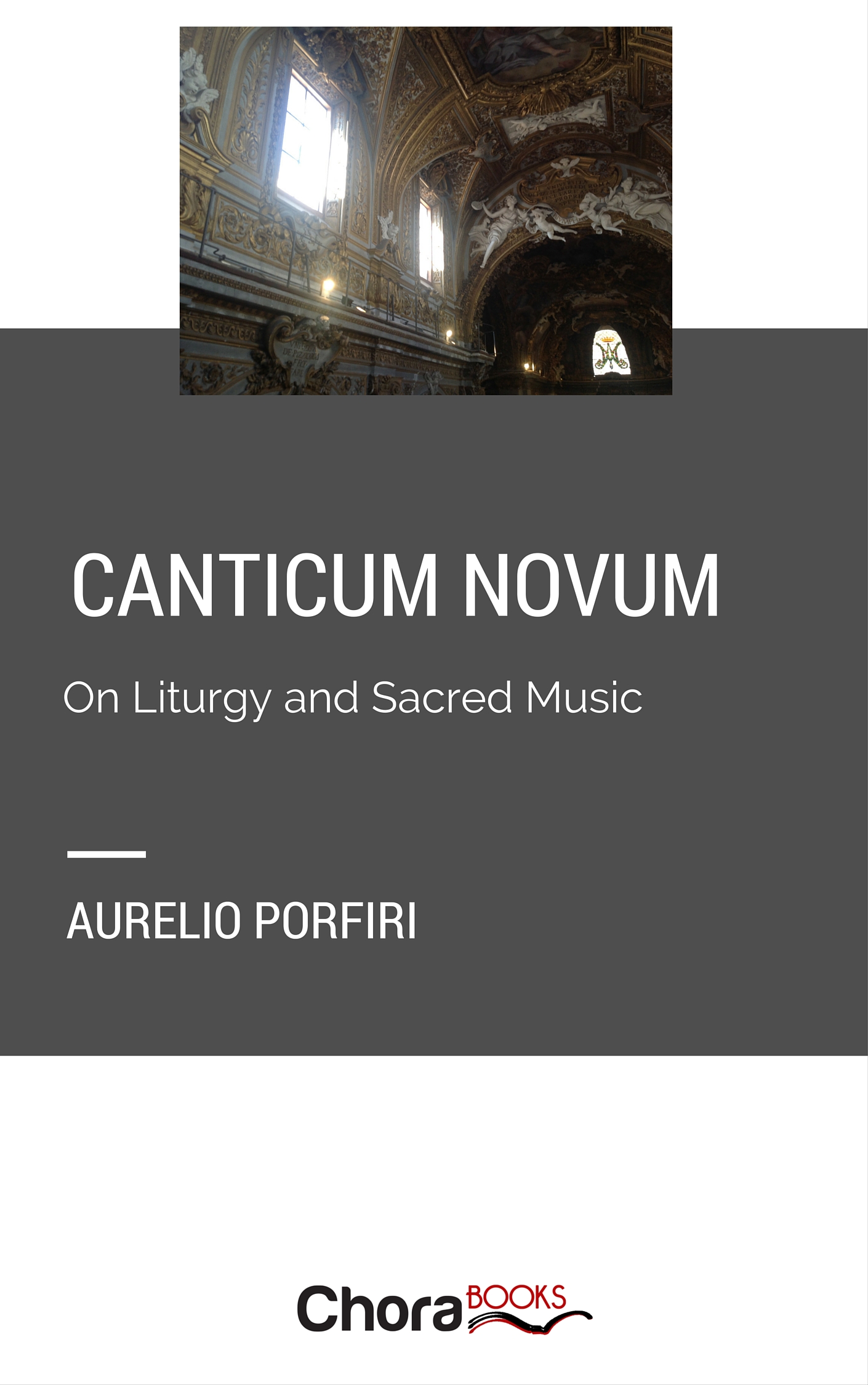
Canticum Novum by Aurelio Porfiri is a book that collects many of his articles published in Views from the Choir Loft during 2015. Aurelio Porfiri, an experienced church musician, has tried to present the situation of Church Music of today in a straightforward manner. In the preface, the editor of Views from the Choir Loft Jeffrey Ostrowski has stated what follows: “When I think of Aurelio Porfiri, I cannot help but recall these words. While it is true that I came into contact with him initially owing to our mutual interest in the modal accompaniment of Gregorian chant, as I came to know him better I realized that he was a “true musician” according to Scriabin’s definition. Many of his talents are known to the public, yet some are not; for example, his skill in video production. In today’s situation, having multiple talents is almost a prerequisite for a Church musician. Some might lament this, asking, “Why can’t we return to the days when one could simply conduct or play organ? Why must today’s Church musician possess so many skills just to make a living?” I cannot answer that question; I can only affirm that it is so. Moreover, as Mr. Porfiri has so often reminded us in his articles, if any progress is to be made in the field of Church music, we must first obtain a clear view of the current situation, without any distortion or sugar coating. In addition to his various pursuits—scholarship, choral arts, and the like—Mr. Porfiri is an inspiration to many because he is a happy and passionate person. These characteristics are very rare, I’m afraid to say, when it comes to Church musicians. He is also a loyal Catholic with a beautiful family who lacks the “hang-ups” of a previous generation. For example, he appreciates the beauty of both the Ordinary and Extraordinary forms of the Mass, and does not feel compelled to denigrate either one”. This book is not against the ordinary form or the extraordinary form, but intends to bring the issue of liturgical music to the general attention.
Liturgical music, or sacred music, is undergoing a huge crisis. In this book Aurelio Porfiri intends to present solid arguments for rethinking the role of this integral part of the liturgy in the overall celebration. The author uses a simple and direct language, so to render this book a pleasant readable experience. It is not technical in anyway, but a book to lead people to think about the situation we find in our catholic churches around the world. The author has said in one of the chapters: “Undoubtedly one of the major problems is the false understanding about the role of music in the liturgy; a role that is not to be there on its own, per conto suo, we would say in Italian. Music and liturgy are intimately connected. So, without the deep understanding of the liturgy, there is no liturgical music. It is useless to fight, sending back and forth phrases from Sacrosanctum Concilum or Saint Pius X’s Motu Proprio: everything has to be understood in the framework of a deep attention and respect for the liturgy. Everything will follow from this. Words are important. This is why I am diverging the attention from the music to the liturgy. Of course music has a life in itself, but when liturgical, it becomes like a bride that from that moment will be intimately connected with her husband”. A book for everyone, church musicians or lay believers alike, for whoever wants to understand the role of this great musical tradition in the history of the Church.
Genre: RELIGION / Christian Rituals & Practice / Worship & LiturgyThis books is a collection of blog posts done by the author in a very influential website called Views from the Choir Loft. The posts had thousands of viewers so it is a book expected to meet a large audience.
ARCHBISHOP SAMPLE LETTER ON SACRED MUSIC
If we read the 2013 Pastoral Letter on sacred music by Archbishop Alexander K. Sample to his past diocese of Marquette, I think we need to notice three instances of good news, but one of bad news.
Let us begin with the good news.
The first instance of good news is the Archbishop’s framework when dealing with sacred (or liturgical music). He is presenting to his diocese the exigency of continuity, the hermeneutic of continuity (Benedict XVI) that will be the happy key to solve many of the problems raised by the wild interpretation of Sacrosanctum Concilium.